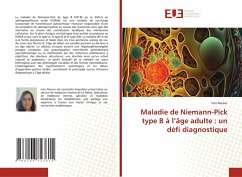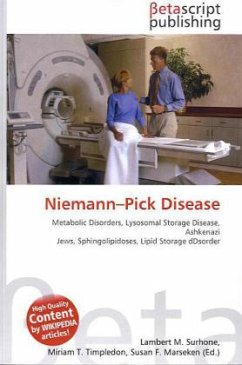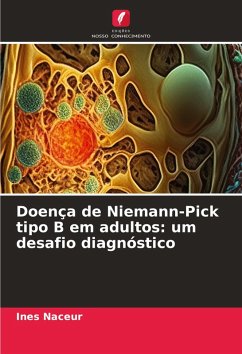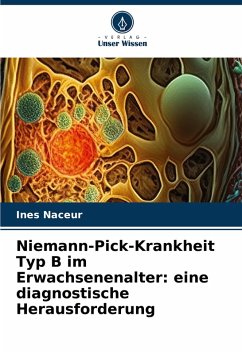
Niemann-Pick type B disease in adulthood: a diagnostic challenge
Versandkostenfrei!
Versandfertig in 6-10 Tagen
29,99 €
inkl. MwSt.

PAYBACK Punkte
15 °P sammeln!
Niemann-Pick disease type B (NP-B) or acid sphingomyelinase deficiency (DSMA) is an autosomal recessive lysosomal storage disease caused by a mutation in the sphingomyelin phosphodiesterase 1 (SMPD1) gene. SMPD is responsible for an accumulation of sphingomyelin in lysosomes, as well as abnormalities in the lipid constituents of cell membranes. Clinically, three entities secondary to DSMA can be distinguished: Niemann-Pick type A (NP-A), an early neurovisceral form; Niemann-Pick type B, a chronic visceral form; and Niemann-Pick type A/B (NP-A/B), a chronic neurovisceral form. NP-A disease is c...
Niemann-Pick disease type B (NP-B) or acid sphingomyelinase deficiency (DSMA) is an autosomal recessive lysosomal storage disease caused by a mutation in the sphingomyelin phosphodiesterase 1 (SMPD1) gene. SMPD is responsible for an accumulation of sphingomyelin in lysosomes, as well as abnormalities in the lipid constituents of cell membranes. Clinically, three entities secondary to DSMA can be distinguished: Niemann-Pick type A (NP-A), an early neurovisceral form; Niemann-Pick type B, a chronic visceral form; and Niemann-Pick type A/B (NP-A/B), a chronic neurovisceral form. NP-A disease is characterized by severe visceral and neurodegenerative damage, which is progressive and fatal within the first three years of life. In B forms, there is no neurological involvement, and the age of onset is highly variable, with adult onset possible. The clinical picture often associates almost constant hepatosplenomegaly, interstitial lung disease that is generally asymptomatic or manifested b














